The European Union is committed to becoming the first climate-neutral bloc in the world by 2050. This requires significant investment from both the public and the private sectors. Transitioning to more sustainable finance can be challenging, as it requires new mechanisms, procedures and tools to identify, design and finance green projects.
A major milestone in this respect is the EU Taxonomy classification system, which for the first time defines environmentally sustainable economic activities and thus prevents greenwashing through a set of sector-specific technical screening criteria.
The EIB is one of the world’s main financiers of climate action, with the Climate Bank Roadmap outlining bold climate finance ambitions for the period 2021-2025. The EIB green eligibility rules applicable to intermediated lending products follow the principles of the EU Taxonomy.
In this context, the European Investment Advisory Hub, the EIB and the European Commission have agreed to develop advisory tools for financial institutions supporting climate action and environmental sustainability investments, through the Climate Action Support Facility (CASF).
The Green Gateway – Advice for financial institutions is a portal developed as part of CASF, which aims to support financial institutions with the assessment and reporting on the green eligibility and green impact of investment projects. The Green Gateway offers a green eligibility check tool, guidelines and case studies on green investment criteria and with time, also the access to interactive e-learning programmes. As such, Green Gateway tools are instrumental in helping EIB financial intermediaries with allocating green sub-projects under EIB intermediated finance products.
Under CASF, EIB is also helping its financial intermediaries with targeted bilateral advisory support assignments to accelerate lending to climate change mitigation, adaptation and environmental sustainability projects.
The bilateral advisory support consists of a set of complementary modules, including product development, portfolio screening, project origination, impact reporting and monitoring and on-the-job training. Each assignment is tailored to the specific needs of the financial intermediary. The advisory is delivered by a team of EIB and external financial and technical experts in a flexible and hands-on manner.
The objective of each bilateral assignment is to enhance the internal capacities, procedures and tools of the financial intermediaries to screen and originate eligible transactions and report the impact of the loan portfolio. The advisory also helps financial intermediaries to identify promising green market segments, client categories and investment types.
Financial intermediaries are selected for the bilateral support according to their climate action financing ambitions and advisory needs.



